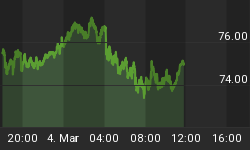The House passed two bills attempting to rehabilitate the housing and mortgage market this week. There doesn't seem to be any shortage of criticism and blame for the bad decisions, and rightly so. Lenders and banks do share much of the blame for the overheated market. Lending standards were relaxed, or even abandoned altogether, creating an exaggerated pool of homebuyers that led to ballooning home prices that many, especially real estate investors, expected to continue forever. Now that the bubble has burst, the losses are staggering.
However, many in Washington fail to realize it was government intervention that brought on the current economic malaise in the first place. The Federal Reserve's artificially low interest rates created the loose, easy credit that ignited a voracious appetite in the banks for borrowers. People made these lending and buying decisions based on market conditions that were wildly manipulated by government. But part of sound financial management should be recognizing untenable or falsified economic conditions and adjusting risk accordingly. Many banks failed to do that and are now looking to taxpayers to pick up the pieces. This is wrong-headed and unfair, but Congress is attempting to do it anyway.
These housing bills address the crisis in exactly the wrong way, by seeking to hide the problem with more disastrous government bail-outs and interventions. One measure, HR 5830 the Federal Housing Administration (FHA) Housing Stabilization and Homeowner Retention Act would allow the FHA to guarantee as much as $300 billion worth of refinanced home loans for those facing threat of foreclosure. HR 5818 the Neighborhood Stabilization Act, would provide $15 billion in loans and grants to localities to purchase and renovate foreclosed homes with the object of then selling or renting out those homes. Thankfully, President Bush has vowed to veto both of these bills. It is neither morally right nor fiscally wise to socialize private losses in this way.
The solution is for government to stop micromanaging the economy and let the market adjust, as painful as that will be for some. We should not force taxpayers, including renters and more frugal homeowners, to switch places with the speculators and take on those same risks that bankrupted them. It is a terrible idea to spread the financial crisis any wider or deeper than it already is, and to prolong the agony years into the future. Socializing the losses now will only create more unintended consequences that will give new excuses for further government interventions in the future. This is how government grows - by claiming to correct the mistakes it earlier created, all the while constantly shaking down the taxpayer. The market needs a chance to correct itself, and Congress needs to avoid making the situation worse by pretending to ride to the rescue.
















